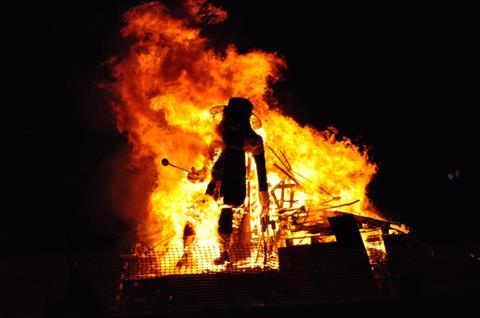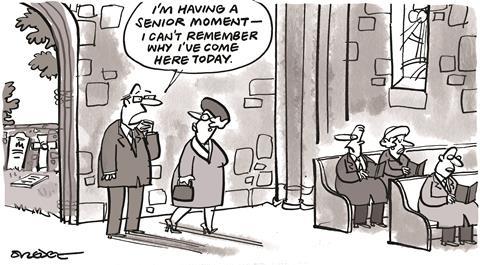Explaining Guy Fawkes Night to American friends made Jeff Lucas realise how bizarre our traditions can seem when we forget their meaning - a lesson that applies equally to Christian worship

Shivering in our gardens on Guy Fawkes Day we chanted: “Remember, remember the 5th of November, gunpowder, treason and plot.” Someone, somewhere had prescribed that we eat hot dogs with lashings of onions, accompanied by charred jacket potatoes baked on a grill. Our “oohs!” and “ahhs!” rang out as fireworks lit up the night sky and we twirled sparklers in circles. But the climax of the evening was the burning of an effigy of the hapless Guy Fawkes, who failed in his attempt to blow up the House of Lords back in 1605.
Painstakingly created out of old clothes stuffed with newspaper and secured with bits of string, Guy sported a rather unsmiling mask, which is not surprising as he was ultimately hung, drawn and quartered, even though our celebration required an execution by fire. We cheered as we watched the bloated effigy shrink, engulfed by the bonfire’s flames.
And all of that seemed like perfectly normal behaviour – until I recently attempted to explain this uniquely British festivity to some American friends. Only then did it dawn on me that this was a very bizarre, even macabre, family event. We were staging a mock execution – the agonising burning alive of a human being. Look, children, the Guy’s trousers are on fire. Isn’t that fun?
There were other rather odd elements to the evening too. We lit Catherine wheels, pretty, spinning firework orbs that were named after another excruciating method of dispatch: placing the condemned on a wheel, and…well, I won’t go into it, because enough is enough.
I’m not suggesting that we shouldn’t celebrate Fireworks Night. It’s preferable to Halloween by far. Rather, my concern is that we never asked why we did what we did to mark the apparent saving of democracy four centuries earlier. Of course, it could be argued that this also happens around Christmas, as many celebrate the birthday of someone who never gets invited to their own party. The “reason for the season” – to quote the old slogan – is completely missed.

We Christians can also miss the why when we come to worship together. When we do so, we can end up with mindless routine and dead ritual. Here, I point no accusatory finger at any one tradition. Sadly, I used to think that the worship style I prefer (a band rather than an organ) was the best way to praise to the Lord – which is unsurprising, because we all tend to think God shares our own personal preferences.
As a result, I dismissed the beauty of crafted liturgy and lobbed formal worship into a skip labelled ‘youthful arrogance’. But any worship style can descend into hollowness when we forget why we’re singing and praying.
Michael Griffiths, one-time director of the Overseas Missionary Fellowship, sums up the challenge: “Christians collectively seem to be suffering from a strange amnesia. A high proportion of people who ‘go to church’ have forgotten what it is all for. Week by week they attend services in a special building and go through their particular, time-honoured routine, but give little thought to the purpose of what they are doing.”
God is very aware that we often lose the why. In the Old Testament, Israel was summoned to a disruptive and rather full calendar of feasts and festivals, all designed to help them remember their story.
And Jesus gave us not just a series of words, but the immersive drama of taking bread and wine in Holy Communion to help us recall once more his sacrificial love. So, when it comes to worship, whatever your tradition, may the what always be accompanied by the why. Then you can be sure that you will worship God “with all your heart and with all your soul and with all your mind” (Matthew 22:37).





































No comments yet